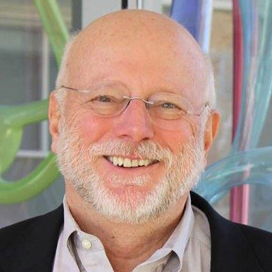Jack's Journal - May 2021
Can the Nonprofit Sector Save Journalism From Itself?
Jack Horak
Director of Nonprofit Education & Consulting
TANGO

But journalism, first of all, is about what is — accurately describing observable realities, including the current, overblown tempest. Unfortunately, the increasing substitution of hysterical mythmaking for news is a malignancy of our time.
Wall Street Journal columnist Holman Jenkins 11/13/20
Online dictionaries tell us that “fake news” is a compound noun that means a media news report that is false. I propose that the term also functions as an adjective used to describe our anxiety about the troubled state of journalism in general – if not anger as it becomes apparent that the media (a for-profit activity) is contributing to the polarization ripping us apart and not just chronicling its effects.
Here is the logic behind my proposition. Journalists are presumed to operate under professional codes of ethics that require truth, accuracy, and objectivity in reporting. This means that journalism’s deliverable (the “news”) comes to the public with an implied warranty of truthfulness and accuracy. In other words, in the context of journalism the word “news” has “truth” baked right into it – so that when we insert the word “fake” we end up with “fake truth,” the equivalent of “everything I tell you is a lie” and a fatal glitch in journalism’s matrix.
If my logic is too strained for you or you still need convincing search the term “post-truth journalism” on You Tube to see the prominent professional and academic levels at which the very existence and/or relevance of truth are up for discussion.
The truth is the stationary anchor to which our exchanges, debates, opinions, and news reports are tethered; and as such it imposes limits on how far we can argue our positions credibly and use language to report observable realities accurately. Without a commitment to this fixed standard our discourse is reduced to an exercise in propaganda and power, and journalists to culture war combatants. And yet, there are some islands in this terribly frightening storm, and I am writing about them.
The islands take the form of the electronic nonprofit (tax-exempt) newspapers that have started to emerge around the country to fill in the “news deserts” created by failed and failing traditional print newspapers. The Ct. Mirror is local to TANGO and is an excellent case in point (please see my September 2020 Tango Trends interview with Mirror Publisher Bruce Putterman), but there are several others that you can learn about by going to the Web Page of the Institute for Nonprofit News at https://inn.org/.
TANGO is an enthusiastic supporter of this emerging form of news platform and you should be too.
In subsequent articles in TANGO Trends and elsewhere I will explain the several reasons behind our support, but primary among them all is the immunity to the Fake News phenomenon that is hard wired into their corporate, governance, and tax structures as a condition to IRS approval of the tax-exempt status they depend on for their financing.
As I will explain, nonprofit newspapers do not have stockholders or owners with a profit interest; they are subject to limits on executive compensation; they are prohibited from political involvement and candidate endorsements; and most important of all, their journalism must be educational — requiring truth, accuracy, and objectivity in reporting.
At a moment when truth, accuracy, and objectivity are losing their hold on for-profit journalism, they are the raison d’être of these nonprofit newspapers. Where the governing boards of for-profit media have fiduciary duties to maximize profits per share, the governing boards of these newspapers have a fiduciary duty to ensure the truth, accuracy, and objectivity of their organization’s journalism; and this duty is owed to the beneficiaries of the journalism – the members of the public who use reported information when forming opinions, voting, and making life decisions.
Overall – I will urge readers to view to view the newspapers as something akin to a community foundation or community trust — but with the newspapers collecting and dispersing information instead of money.
With all of that said, to give you a preview of where I will be heading I direct you to my April 2, 2021 opinion piece in the nonprofit Ct. Mirror entitled A Tax Pathway to Balanced Journalism – available at the end of this link: https://ctmirror.org/category/ct-viewpoints/a-tax-pathway-to-balanced-journalism-john-horak-2/.
I will pick up with this topic in my June TANGO Trends column – and in the meantime I invite comments and suggestions from readers. I can be reached at .
More From TANGO
March 2024 – Founders Forum by Rollin Schuster
This month we had the good fortune to formally launch TANGO into New York City.
Partners Perspective – March 2024
Grassroots lobbying presents a powerful tool in a nonprofit organization’s arsenal of asserting its
significance and its message.
CONTACT
TANGO
Jack Horak
Director of Nonprofit Education & Consulting
TANGO – The Alliance for Nonprofit Growth & Opportunity
135 South Road
Farmington, CT 06032
877-708-2646
tangoalliance.org
